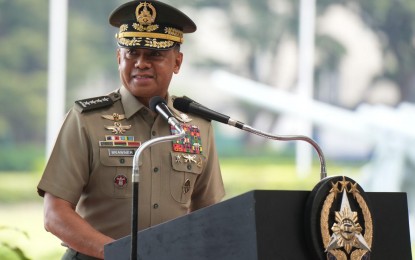MANILA – Armed Forces of the Philippines (AFP) chief Gen. Romeo Brawner Jr. hailed all military personnel for remaining professional amid the current “political chaos.”
“And so I would like to express my gratitude to the entire AFP for remaining solid, united and professional despite the political noise, the political chaos that is happening now in our country. Let us continue with this,” Brawner said during the flag-raising ceremony at Camp Aguinaldo, Quezon City.
The event also commemorated the 35th anniversary of AFP Code of Conduct.
Brawner called all AFP members to not be bothered by current events and enjoined them to continue serving the country efficiently.
“Let us not allow ourselves to be bothered by what is happening. Let us just focus on our jobs,” he said, reminding military personnel that “strength without integrity is hollow.”
“This is where the AFP Code of Conduct stands as our foundation. For 35 years, it has served as our moral compass, demanding of us the highest standards of honor, service and patriotism.”
Brawner’s message comes in light of the corruption issue hounding government flood control projects allegedly involving private contractors and elected officials.
President Ferdinand R. Marcos Jr. earlier created the Independent Commission for Infrastructure (ICI) to investigate alleged anomalous projects, particularly flood control works, over the past 10 years.
The ICI’s findings will be the basis for recommending the filing of charges.






